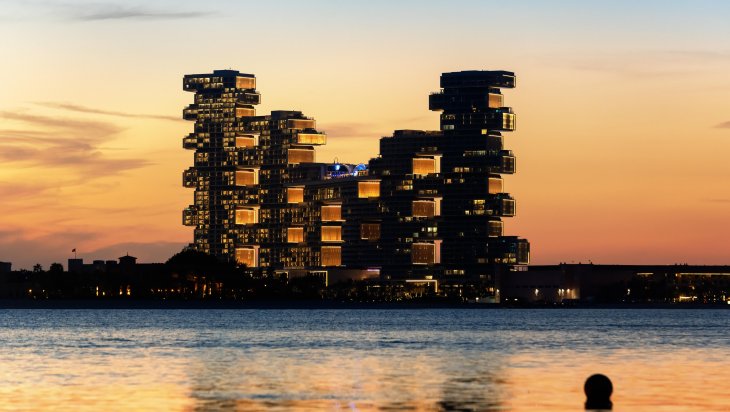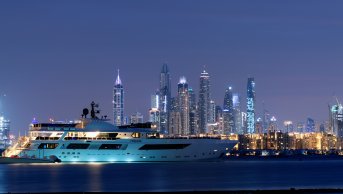Gulf region offers model for sustainable development

This year, it is clear that the Gulf Cooperation Council is undergoing a tech revolution, focusing on quantum and green technologies. This strategy is not just changing the region's economy; it is also setting a new standard for how regions can succeed in the face of global challenges.
By investing in these innovative technologies, the Gulf Cooperation Council is creating a future filled with hope and creativity.
Take, for example, the United Arab Emirates' launch of the Quantum Computing Research Group at the Technology Innovation Institute in Abu Dhabi. The aim is to develop quantum computing for things like cryptography and secure communication. Similarly, Saudi Arabia's investment in NEOM, a $500 billion megacity project, shows its dedication to green technology, with plans for a city powered by renewable energy and zero carbon emissions.
The Gulf Cooperation Council's focus on these technologies shows that the countries are serious about changing their economies. In addition to the use of new technology, this is also about leading a shift toward technological innovation and sustainability, putting countries in the region at the forefront of global leadership in this area.
The emphasis on quantum computing's potential to transform industries and the move toward green technology are more than strategic decisions. They are also a commitment to tackle global challenges head-on, and reflect a vision for a sustainable future marked by major advancements and a strong commitment to progress and taking care of the environment.
Additionally, the region has hosted a number of conferences, like the annual Green Tech Forum in Dubai, at which experts from around the world come together to talk about renewable energy, waste management, and making cities more sustainable. These events are great for sharing knowledge and building partnerships that help spread green technologies throughout the region.
The Gulf Cooperation Council's move toward quantum computing and green technology is a smart choice, as well as a necessary response to the urgent need for sustainable development and creative solutions to complicated global problems. Quantum computing is helping make our cybersecurity stronger and our energy systems better, while green technology is leading to sustainable, eco-friendly solutions. Together, they are tackling some of the biggest challenges we face today.
This effort by the Gulf Cooperation Council is crucial for creating an economy that combines technological progress with caring for the environment. Moving away from relying on oil is a big shift that highlights how important these technologies are for the region's future economic health and growth.
For example, the council has launched significant projects such as Saudi Arabia's Vision 2030, which includes the development of smart cities like NEOM, designed to operate on renewable energy and innovative technologies. Similarly, the UAE's Dubai Clean Energy Strategy 2050 aims to produce 75 percent of the country's energy from clean sources by 2050, showcasing a commitment to green technology.
The narrative's distinction is rooted in its holistic perspective, considering not just the technological or economic aspects in isolation, but also how these elements interlink to forge a path toward sustainable growth. This approach sets a precedent, illustrating that economic diversification, powered by cutting-edge technologies, can propel societies toward a future in which progress does not come at the expense of the planet.
In sum, the Gulf Cooperation Council's strategic embrace of quantum computing and green technologies offers a blueprint for how regions can navigate the twin challenges of economic development and environmental sustainability. This vision for a balanced, sustainable economic model, powered by technological innovation, stands as a beacon for others, demonstrating that with strategic planning and investment, it's possible to pave the way for a prosperous and sustainable future.
In 2024, the council's member states are poised for economic growth — surpassing last year's performance, despite global uncertainties — by diversifying from oil to sectors like infrastructure, tourism and hosting of events. With Saudi Arabia, the UAE and Qatar leading the way, this shift toward economic resilience is further strengthened by investments in quantum computing and green technologies. This strategic move positions the region for sustainable growth and technological leadership, and represents a significant step toward a diversified and sustainable economic model.
The positive outlook for 2024 reflects the Gulf Cooperation Council's commitment to balancing economic vigor, technological progress and environmental stewardship. By integrating economic diversification with environmental and technological innovation, the council is setting a precedent for sustainable and technological advancement. This approach, emphasizing the synergy between technological advancements and sustainable economic growth, serves as a global model for sustainable development, highlighting the importance of forward thinking in achieving a balanced, innovative and sustainable global society.
This article was previously published on February 22, 2024, on China Daily website titled " Gulf region offers model for sustainable development".








